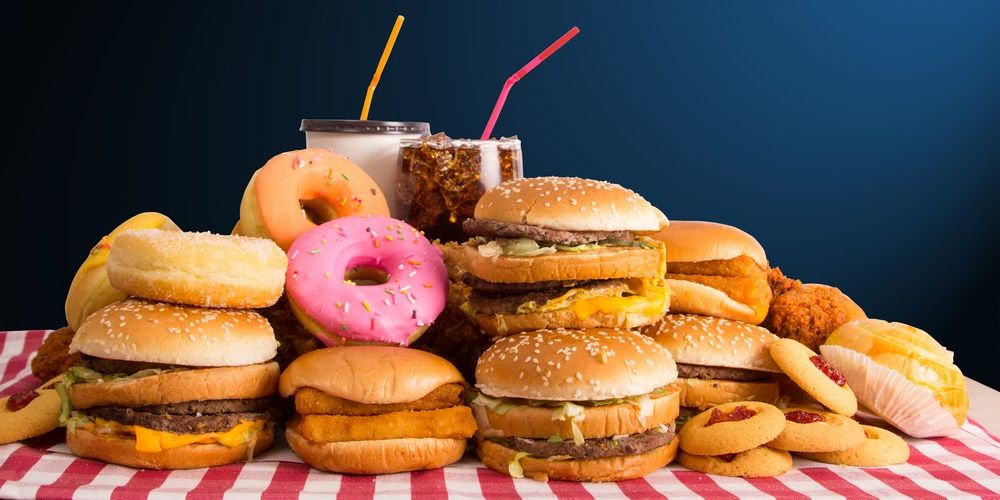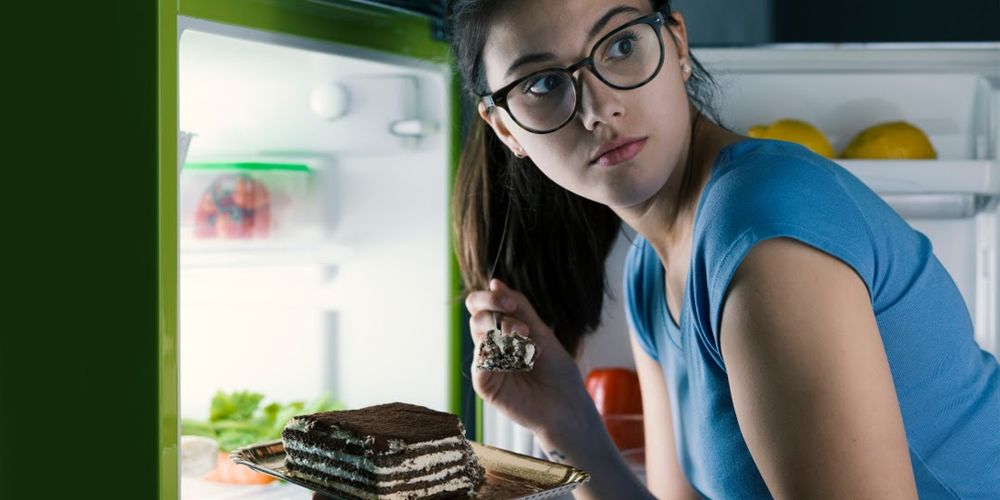The impact food can have on your physical appearance and wellbeing is pretty well-known. But something that’s not so obvious is its ability to make or break your mood and cause anxiety. How on earth can this happen? Well, it’s a bit multifaceted and it starts with the timing of your meals.
Hangry
Several years ago, the word “hangry” started to catch on across the nation. It’s a combination of angry and hungry. Those who do not eat for a certain period of time end up getting hangry and it sometimes gets to the point where you do not even want to be in the same room as them.
Although fasting has been proven to regulate mood and balance hormones over time, it’s probably not a good strategy to deploy for those who get hangry. If you fall into this category, you are better served eating on a regular schedule.

Junk Food
Did you ever really stop and think about what construes food as actual junk food? The quick answer is anything that lacks any real, good-quality nutrients. A doughnut, for example, is junk food. Chips, French fries, candy, cupcakes and soda all fall into this category as well.
These foods and beverages can cause anxiety in more than one way. If you are an otherwise healthy eater and someone brings in a tray of baked goods from a local bakery, and you indulge, you can get anxiety because you blew your diet. Additionally, you can feel ill effects like massive lethargy, bloating, stomach cramps and discomfort in your waistline.
You then feel regret, which can lead to depression and anxiety. In the worst of cases, it can actually spiral you out of control and throw caution to the wind with your diet the rest of the day and possibly the days after.
That entire scenario can prolong the anxiety and make it really hard to function.
The other way junk food can affect you is from your blood sugar levels. Particular types of junk food that are high in sugar and simple carbs, such as the doughnuts and soda mentioned earlier, can send your blood sugar levels soaring through the roof. Then they come down with an equally seismic crash and you find yourself exhausted.
Then you become ravenous again, so you eat more junk food to calm your appetite. This vicious cycle repeats itself for the balance of the day and you end up feeling anxious. This is basically a side effect of unstable blood sugar levels.
Emotional Eating
As defined by the Mayo Clinic, emotional eating is eating as a means to suppress or soothe negative emotions like fear, stress, sadness, loneliness and boredom. This is a very big catch-22. One who is already dealing with anxiety might look to food as a remedy to take the edge off.
And it often does work in the beginning. But it is short lived. They also usually overeat and choose foods that are not-so-healthy. This causes the same cycle to repeat itself again and again.
Over time, one of the main problems with emotional eating is it can cause a lot of weight gain. Then stress levels rise even more. And in reality, food was the cause of it all. Even if someone eats healthy food during emotional binges, it can still have a bad effect.
It’s true that not all calories are created equal. But any excess calories consumed that are not burned can lead to fat gain. Even if it’s a big bowl of quinoa with beans, pistachios and organic shredded cheese.

Late-night Eating
Another way food has an effect on anxiety is the time in which you eat it. The rule of thumb is to stop eating as early in the evening as possible. The experts on this topic usually recommend 7 pm, to be specific. And there is a good reason why you should aspire to honor this.
Sleep is a time where your body gets to recover and recharge. Muscle is actually built, immunity goes up and your cells regenerate. The quickest and easiest way to sabotage all of this is by late-night eating. Especially if it is highly processed food like ice cream, cookies and cereal.
By eating late at night, you disrupt your circadian rhythm. This is like a computer running updates. Certain things happen to keep your body functioning at high levels. But by eating late, this is all thrown out.
You end up disturbing your ability to recover from workouts, stopping your high immunity boost, and most importantly, you will likely have a hard time falling and staying asleep.
Then, the next day, your hormones will be off and you’ll want to eat more than usual. A whole new cycle of bad eating can occur and this could spike your anxiety.
Plus, getting a lack of sleep because you ate late can boost your anxiety levels in the day as well. So you have a number of issues that spawned anxiety and they all could’ve been avoided by finishing earlier in the evening.
The Opposite Direction
So far you only heard about the bad side of food that can cause anxiety. But there is another way it can have a major effect. And that is with people who go to the extreme with health. In other words, if they are invited to a party or out to dinner at a restaurant, they can feel immediate anxiety.
They become panic-stricken, thinking about what they can and can’t eat, and should and shouldn’t have. If this gets too severe, they can even end up with an eating disorder. And today, people have become pretty obsessed with following specific diets like keto, paleo and carnivore.
All of that can be really taxing on the mind and spark up anxiety in a split second.
Overall, you need to be very careful that you don’t fall into any of the above categories. At the end of the day, eating should be enjoyable and not cause any stress or anxiety.
Always aim for a clean diet that is balanced with protein, complex carbs and fat. If you can choose foods that are as natural as possible, you will be doing yourself even more justice and likely never have food-related anxiety.



